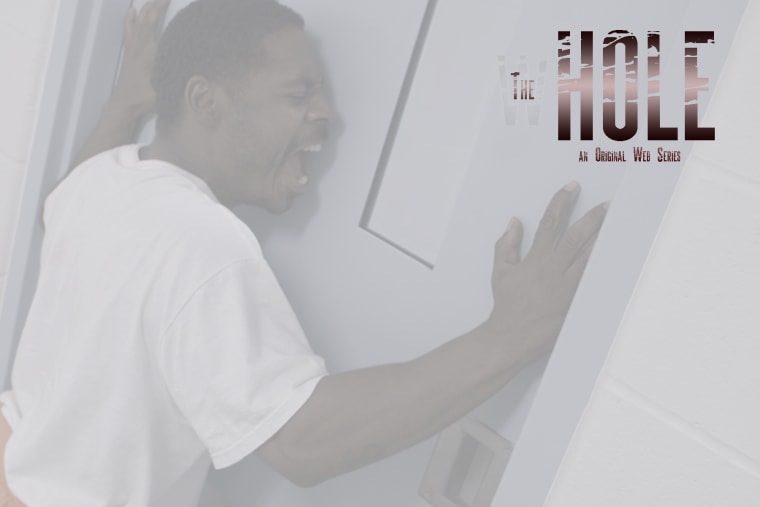The man paces in his cell.
He’s angry. Then he’s peaceful. He exercises. He’s bored. He beats the cement block walls.
He is irritated by the constant buzz of the fluorescent lights. He fixates on how the guards took away a picture of his baby daughter—his last meaningful human interaction. And then he hears the screams of the other prisoners also locked away in solitary confinement mixed in with the gibberish of another man—perhaps in the cell next door—slowly going mad.
He doesn’t want to eat, but if he refuses food, they’ll add time to his time in the hole.
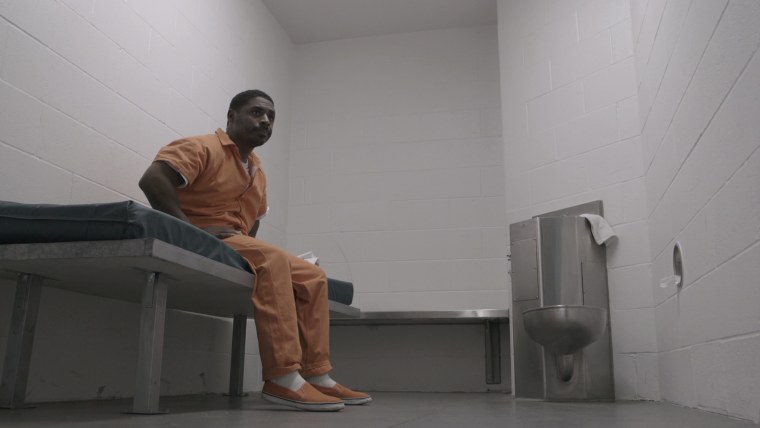
All that is just a portion of what you will see in the pilot episode of “The wHOLE,” a new dramatic web series created to shed light on what many call the inhumane and tortuous practice of placing men, women and children in a cell, alone, with no human contact for 24 hours a day and, in some well-documented cases, for up to 30 years at a time.
“The number one most troubling thing is the fact that people have no clue this is going on and how good of a job [agencies] are at keeping this story untold,” says Ramon Hamilton, who talked to NBCBLK while traveling across America to showcase the first episode of his based-on-real-events web series. Along with Jennifer Fischer, he’s one half of the award-winning production team Think Ten Media Group. Last year Think Ten last year won several film festival accolades for “Smuggled,” a feature film about immigration.
“I was at a panel for Amnesty International and honestly, those numbers are closer to 200,000. The 80,000 is only what they can account for," says Hamilton. "It’s intentionally hidden.”
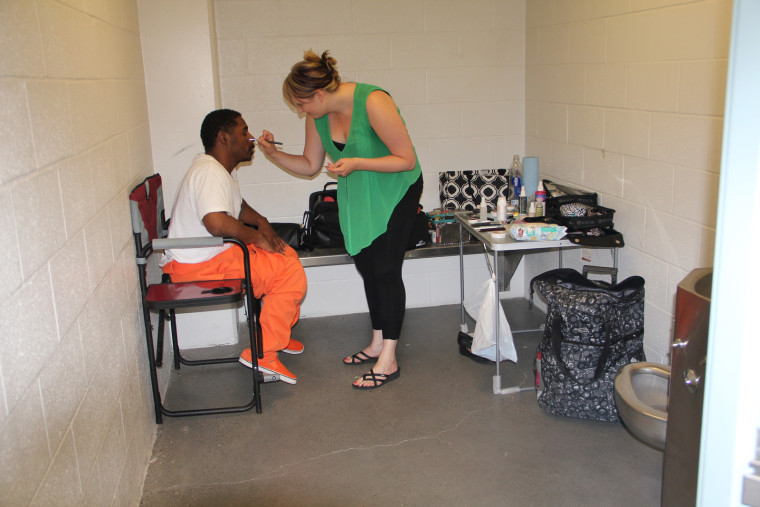
The series dramatizes the story of Marcus Williams, who spends time in 'the Hole', aka solitary confinement. Similar to other prison-based shows such as “The Wire” or “Oz,” the filmmakers hope to show the issue from several viewpoints. The actor who portrays Marcus is William Brown, a former federal and state prisoner who went to jail in real life for armed robbery and eventually spent some 18 months in solitary confinement spread while incarcerated. Brown studied acting after joining a prison thespians program.
“I was locked away for a couple of summers,” says Brown, 39, of Long Beach, California, who draws upon his personal experience to flesh out his web series character. “Usually you’ll be in the hole for a month, 90 days, six months or eight months. One time I was in the hole because I had caught over-familiarity with the staff—that was my charge.”
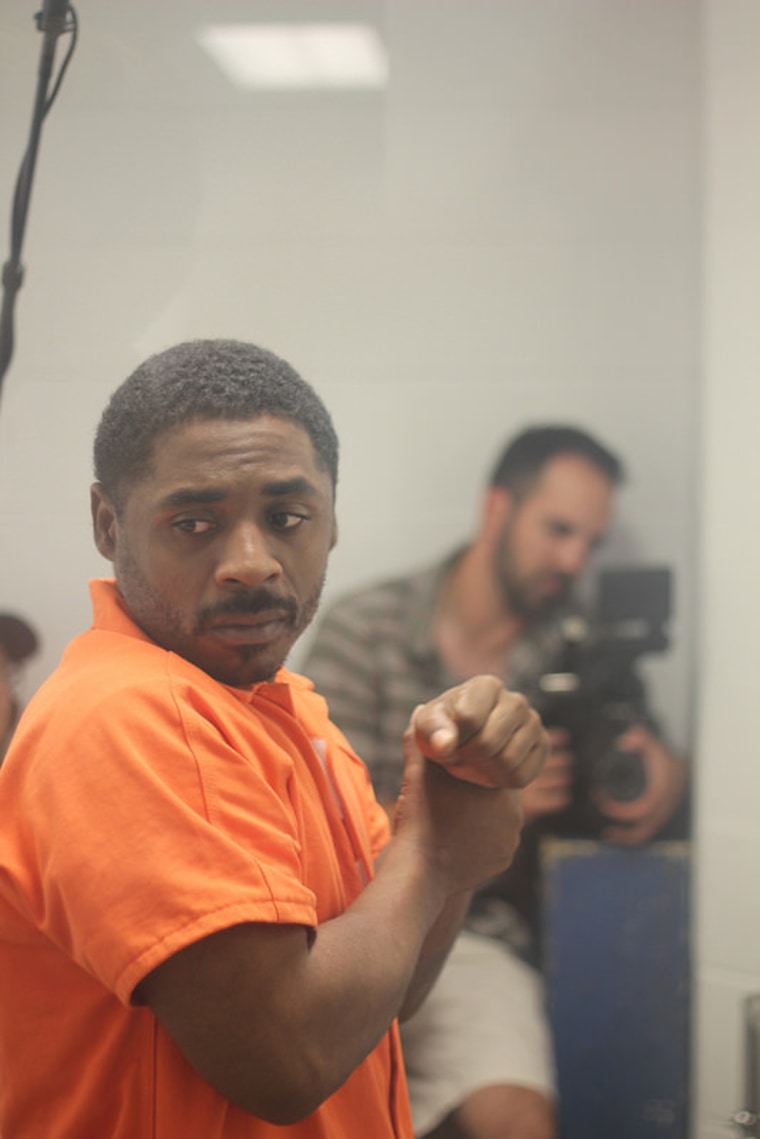
Brown’s character takes the viewer through every possible emotion. The first episode starts with a guard probing his buttocks before throwing away all his possessions—including a picture of his daughter. The episode continues to show how he paces the cell, exercises to find something to do and slowly begins to go crazy.
The filmmakers won’t say what is involved in future episodes, but they are running a crowdfunding campaign via Seed & Spark to help finance the rest of the story. To date, they’ve raised around $11,000 of their needed $20,000. The campaign ends on May 1.
On Twitter, they launched a series of tweetchats focused on reasons why people get tossed into the hole, which, depending upon the prison, can be called “reflection cottages” or “restricted engagement.” Some of these infractions include reporting a rape.
“The gist [of this] is the hole of jail and the whole of criminal justice. And the hole in us as society,” says Fischer. “We’re looking at mass incarceration and criminal justice every season, like the ‘The Wire.’”
In particular, she adds, a true shocker is studying the usage of isolation with minors.
“It really shocked me how often isolation is used for juveniles,” she says. “If any of us did that to our children at our home and someone knew? Child protective services would take your child from you. You cannot lock your child in their room—even with their toys—for 23 hours a day.”
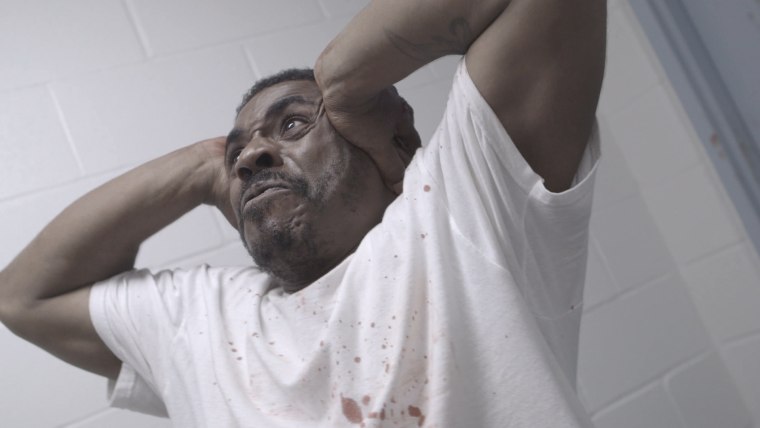
Think Ten, which is based in California, was inspired to create the series after the Pelican Bay State Prison hunger strike of 2013. At the time, California prisoners were protesting the conditions of solitary confinement, and asking for more humane treatment. Now, Think Ten is partnering with a number of agencies to get the word out about “The wHOLE” and US usage of isolation techniques.
“I can talk to you about data and states and what happens until the cows come home but to really show you what it’s like, that has so much more impact,” says Amy Fettig, the ACLU’s senior counsel at the National Prison Project and the leading lady behind the ACLU’s #StopSolitary effort. “We were thrilled when Ramon and Jennifer reached out to us because we understood that one of the huge challenges talking to Americans about this practice and why it needs to stop is to imagine what it could possibly be like. What they’ve done is painted this picture so effectively.”
Visit the series at http://www.thewholeseries.com and see the crowd funding campaign at http://www.seedandspark.com/studio/whole.
